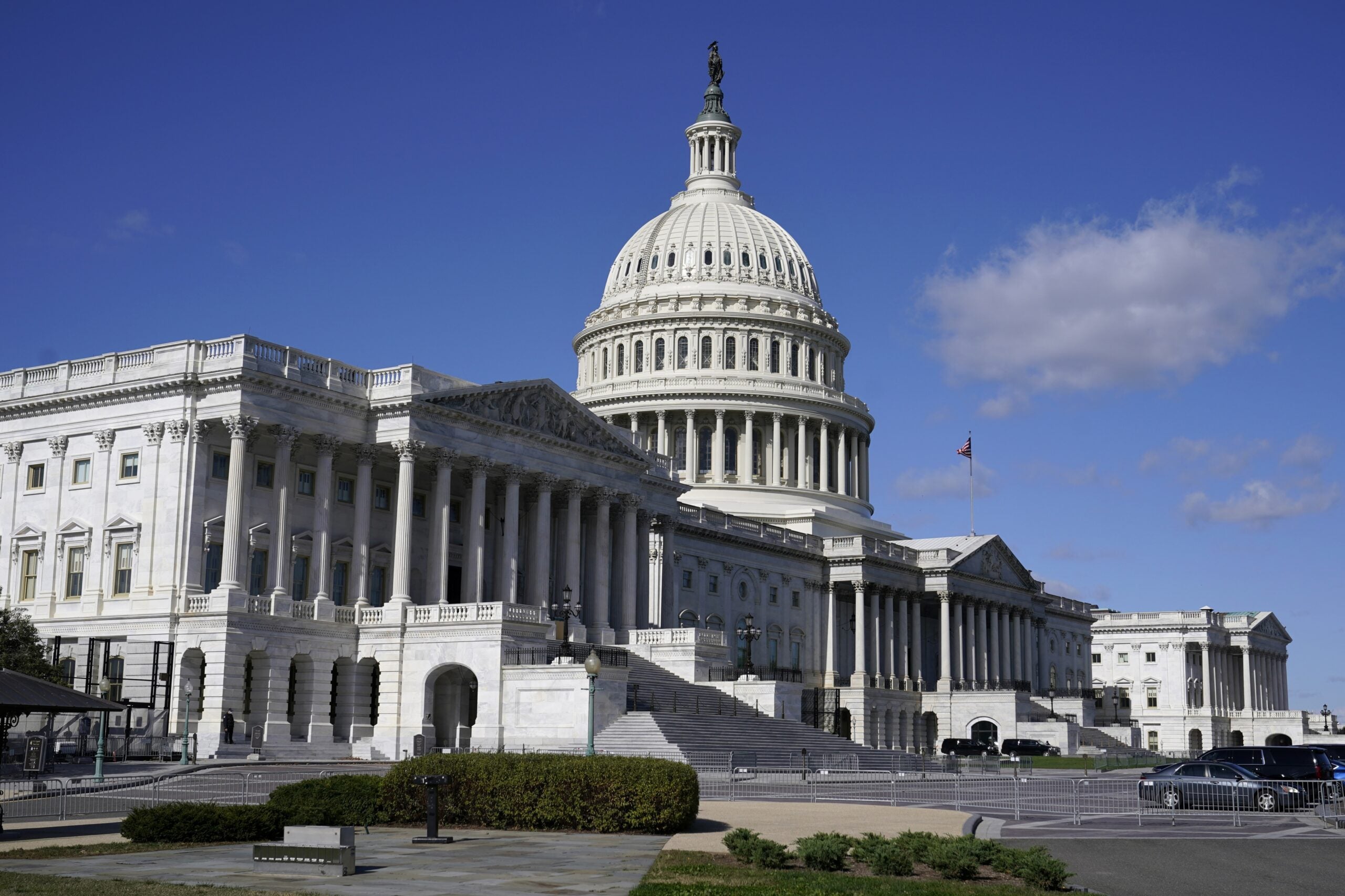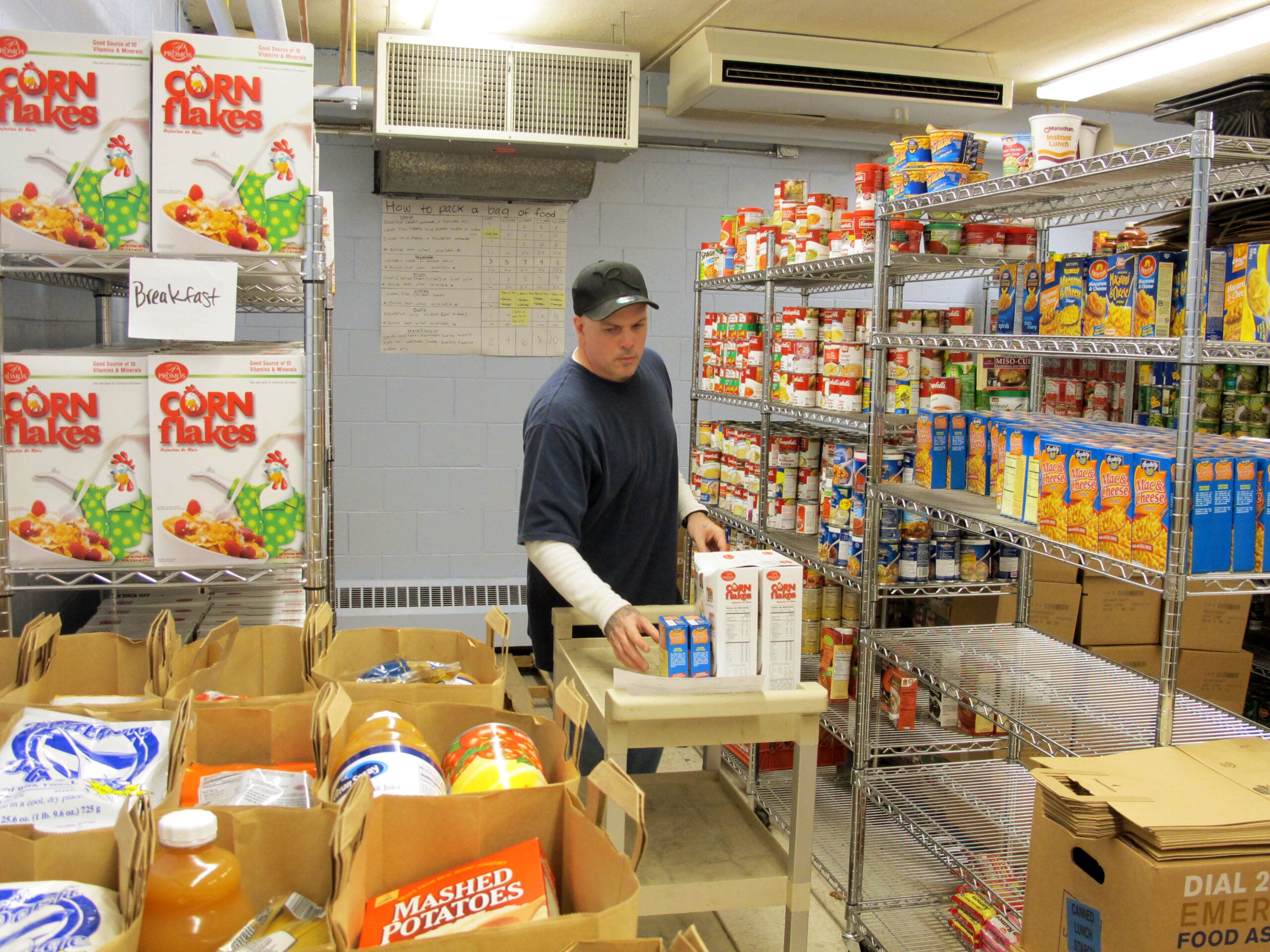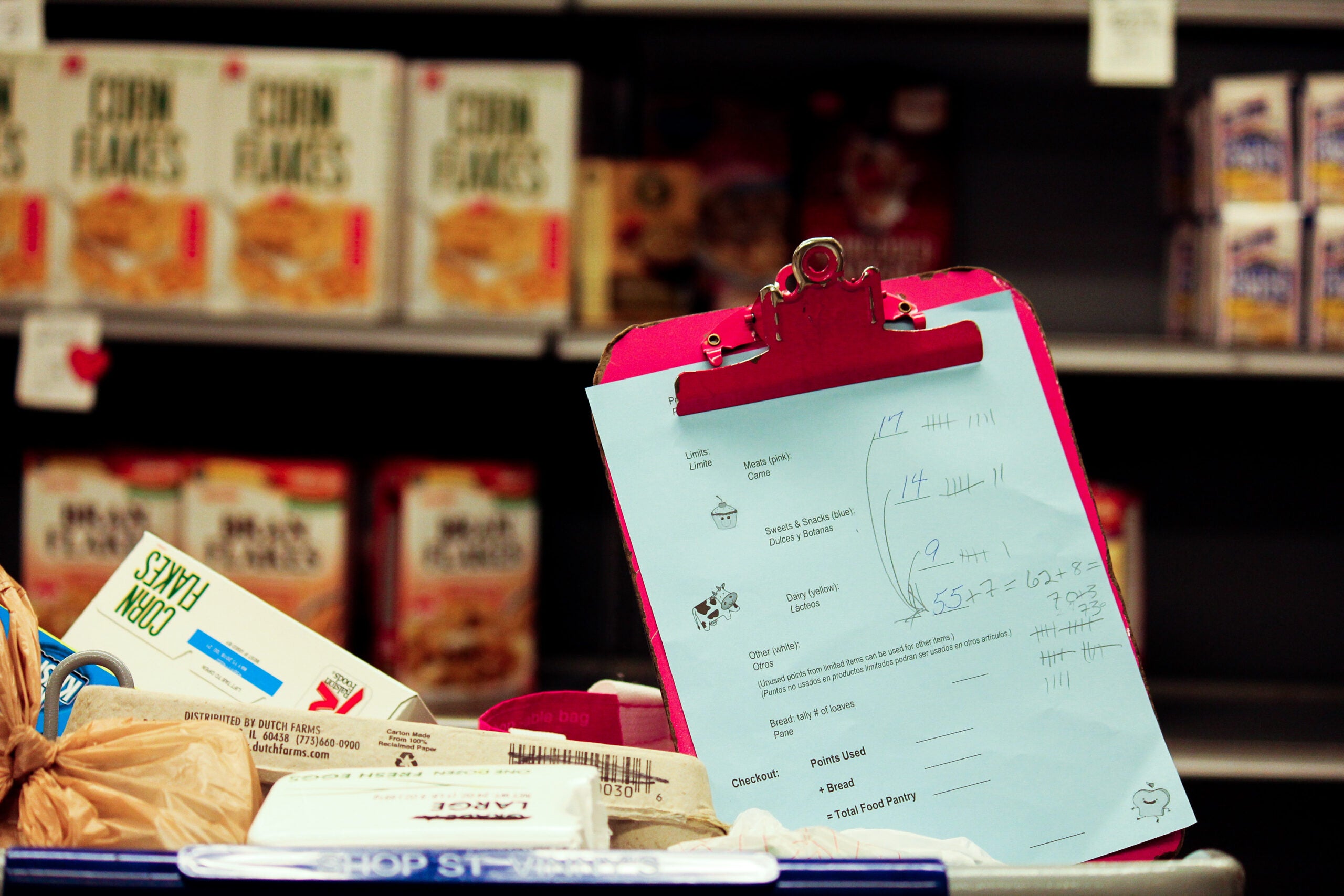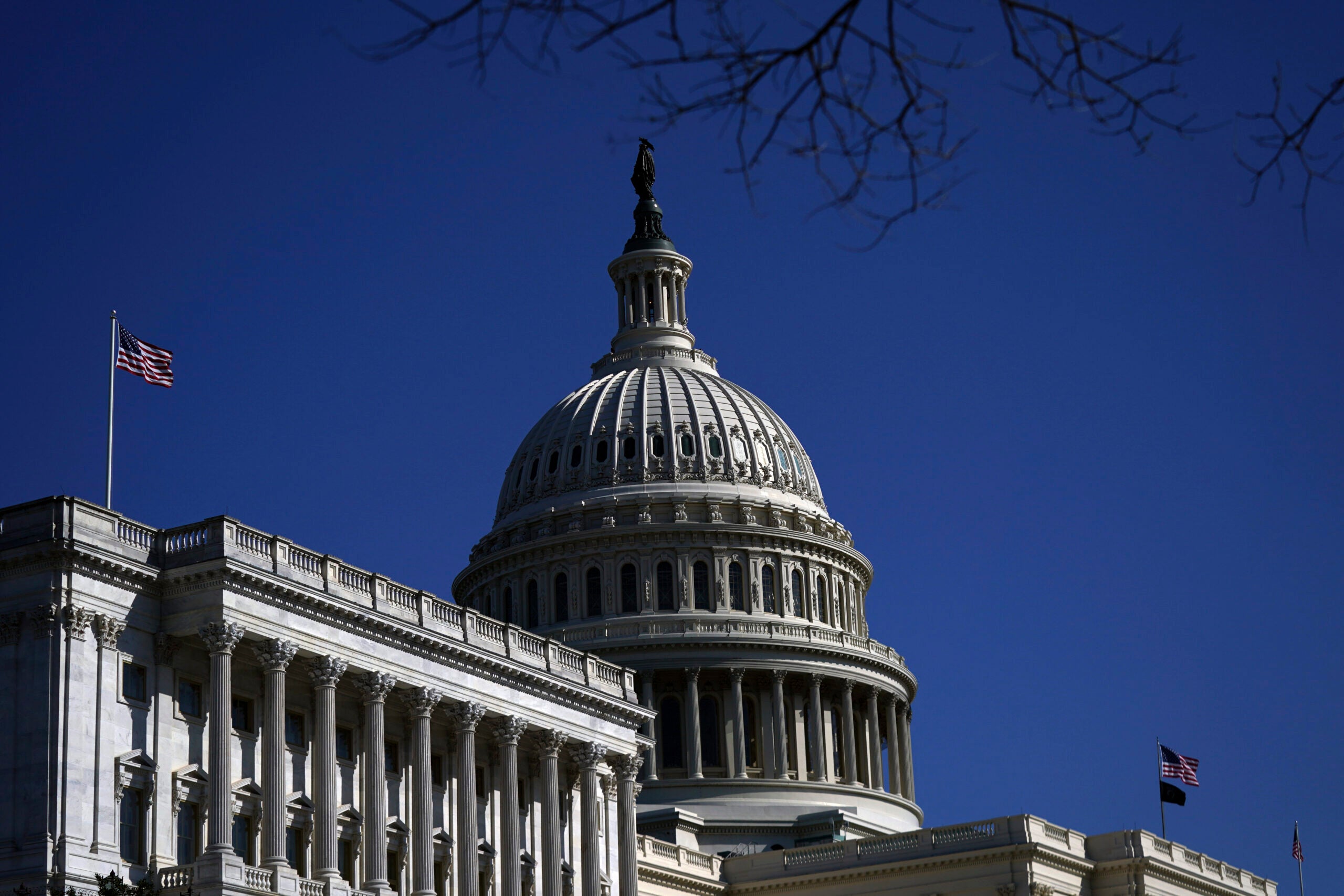Wisconsin is bracing for a partial federal government shutdown, assuming Congress remains at an impasse over a funding bill.
The shutdown is set to take effect Oct. 1 absent an eleventh-hour deal. On Friday, 21 hard-line conservatives in the House of Representatives blocked a bill from GOP leaders, which would have funded the government in the short-term.
Wisconsin’s two House Democrats — Gwen Moore of Milwaukee and Mark Pocan of Vermont — joined all their fellow Democrats in voting against the measure. Wisconsin’s six House Republicans — Bryan Steil of Janesville, Derrick Van Orden of Prairie du Chien, Scott Fitzgerald of Clyman, Glenn Grothman of Glenbeulah, Tom Tiffany of Minocqua and Mike Gallagher of Green Bay — all supported the bill.
News with a little more humanity
WPR’s “Wisconsin Today” newsletter keeps you connected to the state you love without feeling overwhelmed. No paywall. No agenda. No corporate filter.
The failed resolution would have included provisions to beef up border security, as well as steep spending cuts that were blasted by Democrats. But hard-line Republicans said they didn’t want to approve stop-gap funding.
Sunday’s looming stoppage would be the country’s first partial government shutdown since a 35-day shutdown that began in late 2018.
Here’s what the impasse could mean for Wisconsin.
Thousands of federal employees in Wisconsin could be impacted
Federal employees will either be furloughed, working temporarily without pay or reporting to work with pay as normal, depending on their role and what agency they work for.
People who work for self-funded agencies like the U.S. Postal Service won’t see a disruption, because those agencies don’t rely on annual appropriations from Congress. At other agencies, people deemed essential will still report to work as normal, even if their pay is halted. Essential employees include federal law enforcement and anyone tasked with national defense. Non-essential government employees will be furloughed, although they will receive back pay for the missed work eventually.
About 16,800 federal civilian employees live in Wisconsin.
How will food assistance be affected?
More than 709,000 Wisconsinites use FoodShare benefits — Wisconsin’s name for the federal Supplemental Nutrition Assistance Program, or SNAP — to pay for groceries.
If a shutdown happens, FoodShare benefits in Wisconsin will continue to be paid out, at least through the end of October, said Sherrie Tessler, who leads the Hunger Task Force, a Milwaukee-based food bank and advocacy organization.
“I would say if they resolve this before the end of October, everything will be OK,” Tessler said. “But if it goes on into November or longer, then people may also start to see a loss of their nutrition benefits.”
Another federal food assistance program called Special Supplemental Nutrition Program for Women, Infants and Children, or WIC, provides benefits to 91,070 Wisconsin mothers, babies and kids, according to the White House.
The WIC program will continue if a shutdown happens, although recipients would see an immediate drop in their benefits for fruits and vegetables to pre-pandemic levels, according to a spokesperson for Public Health Madison & Dane County, which oversees WIC programming in that region.
Wisconsin’s Department of Health Services did not respond Friday to a request for comment about how a shutdown would affect WIC benefits.
The federal government also pays for free and reduced school lunches. This week, Deputy State Superintendent John Johnson sent a message to public school administrators telling them child nutrition programs — including school lunch, breakfast and snack programs — are reimbursed 30 days after the end of each service month.
“Funding for these programs should be available through the first quarter of the federal fiscal year, through December 2023,” Johnson wrote. “We expect USDA to provide additional information about funding for important programs during a government shutdown.”
About 39 percent of the state’s public school students receive free lunch.
What about health and other benefit programs?
If the government shuts down, Social Security, Medicare and Medicaid benefits would keep being paid.
Even so, under a contingency plan, some staff at the Center for Medicare & Medicaid Services would be furloughed, which could lead to longer wait times for people seeking to replace a Medicare card or to speak to a customer service representative.
Other categories of health care funding remain in question, including federal support for Wisconsin’s 19 community health centers, which provide primary, dental, substance abuse and behavioral health care. Those clinics are often in rural or low-income areas and are required to provide care even to uninsured or under-insured patients.
Richelle Andrae, a lobbyist for the Wisconsin Primary Health Care Association, says such centers will keep their doors open if a shutdown happens. But she says it’s difficult for them to plan amid financial uncertainty.
“They’re constantly trying to think about: Is there a new location that we should be operating out of a new school based site?” Andrae said. “Should we be purchasing a mobile unit to go visit employers more regularly? Is there a new substance use disorder service line that we really need to invest in? Those kinds of strategic questions are made much more difficult when the community health centers are unaware what their budgets will look like for the next year, for the next several years.”
Andrae says the looming shutdown comes at an especially inopportune time, when centers are already dealing inflation and staff burnout. And centers are facing higher numbers of uninsured people amid the phasing out of pandemic-era rules that were designed to keep people from being kicked off Medicaid.
The federal government estimates 10,000 children across the country would immediately lose access to Head Start if the government shuts down. In Wisconsin, nonprofit organizations, schools, community action commissions or other local grantees operate the program to provide a wide variety of social services for children under 5 before they start school.
Jillian Clemens, who runs Wisconsin’s Head Start program, did not respond to requests for comment about how the program would be affected with a government shut down.
Wisconsin Public Radio, © Copyright 2025, Board of Regents of the University of Wisconsin System and Wisconsin Educational Communications Board.







